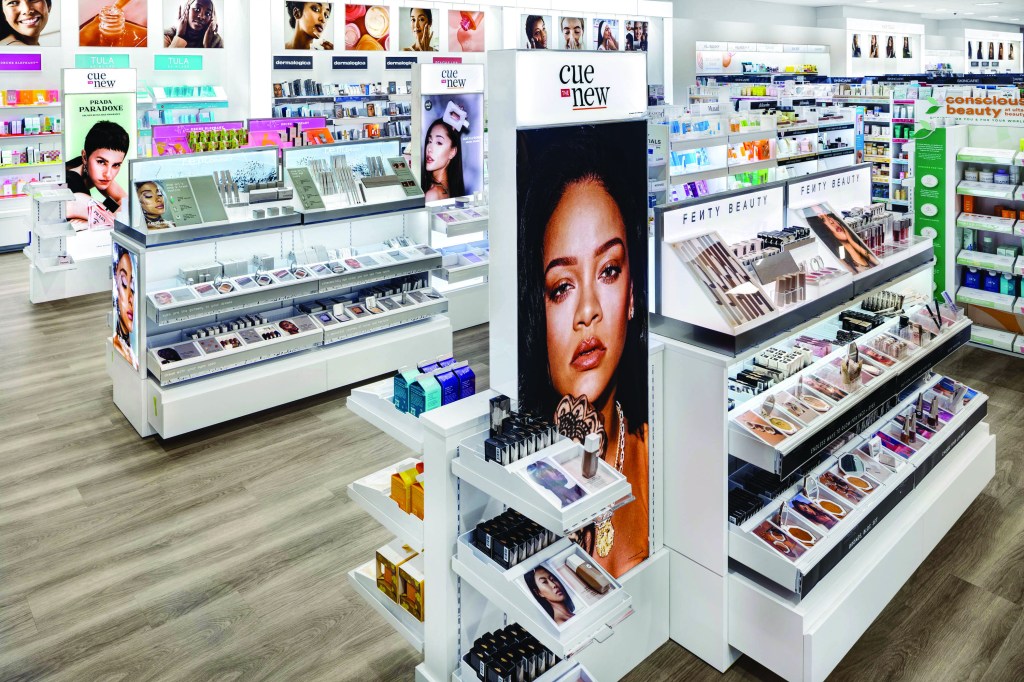Ulta Beauty beat Wall Street’s top-line forecasts — even though shoppers shied away from prestige in the company’s stores as competition heats up the category.
Net sales increased 6.4 percent to $2.5 billion in the three months ended Oct. 28, compared to $2.3 billion a year earlier, above analysts’ expectations for $2.47 billion.
Skin care was once again its fastest-growing category, driven by double-digit growth in the mass and prestige segments. Among the brands highlighted as growth drivers were Drunk Elephant, Good Molecules, La Roche Posey and Dermalogica.
Related Articles
The fragrance and bath category delivered low-double-digit growth, while sales in the makeup category were flat, with midsingle-digit growth in mass makeup offsetting a modest decline in prestige makeup.
“While many mass brands continue to benefit from engaging newness and social engagement, our prestige makeup business was more challenged as we continue to lap the strong impact of last year’s Fenty launch,” said chief executive officer Dave Kimbell during a call with analysts.
This contrasted with Circana’s third-quarter beauty report, which found that makeup maintained its position as the fastest-growing category within prestige by revenue growth, posting $7.1 billion in sales year-to-date, up 16 percent versus last year.
Kimbell noted that at Ulta, the overall prestige category was pressured at its stores due to expanded points of distribution. “There are hundreds more brick-and-mortar locations in the market now than there were even just a couple of years ago.”
He didn’t name any competitors, but as Ulta expands its partnership with Target, Sephora has been multiplying at Kohl’s, which has many doors close to Ulta stores in strip malls.
In particular, Kohl’s has been busy creating scaled-down Sephora shops to fit into 50 of its smaller locations, which average 35,000 square feet.
Among the brands being merchandised in the smaller formats are Rare Beauty, Fenty Beauty, Nars, Charlotte Tilbury, Sephora Collection, Ilia, Lancôme and Too Faced in makeup. The skin care/body care category offers Dr. Dennis Gross, Sol de Janeiro, Biossance, Dr. Jart and Supergoop.
Ulta’s net income for the quarter dropped to $249.5 million from $274.6 million a year ago. Diluted earnings per share were $5.07, down from $5.34, but above Wall Street forecasts of $4.96.
Ulta raised its full-year fiscal outlook for net sales to a range of $11.1 billion to $11.15 billion, up from the $11.05 billion to $11.15 billion previously projected. Diluted EPS guidance was also adjusted to a range of $25.20 to $25.60, from $25.10 to $25.60.
The results came as the company said Scott Settersten has decided to retire as chief financial officer after nearly 20 years, effective April 1.
Paula Oyibo, senior vice president of finance, will succeed Settersten as CFO and will report to Kimbell.
This comes not long after Kecia L. Steelman, Ulta’s chief operating officer who is viewed in industry circles as a potential successor to CEO Dave Kimbell, added president to her title. Prior to being appointed CEO, Kimbell also had the title of president.


